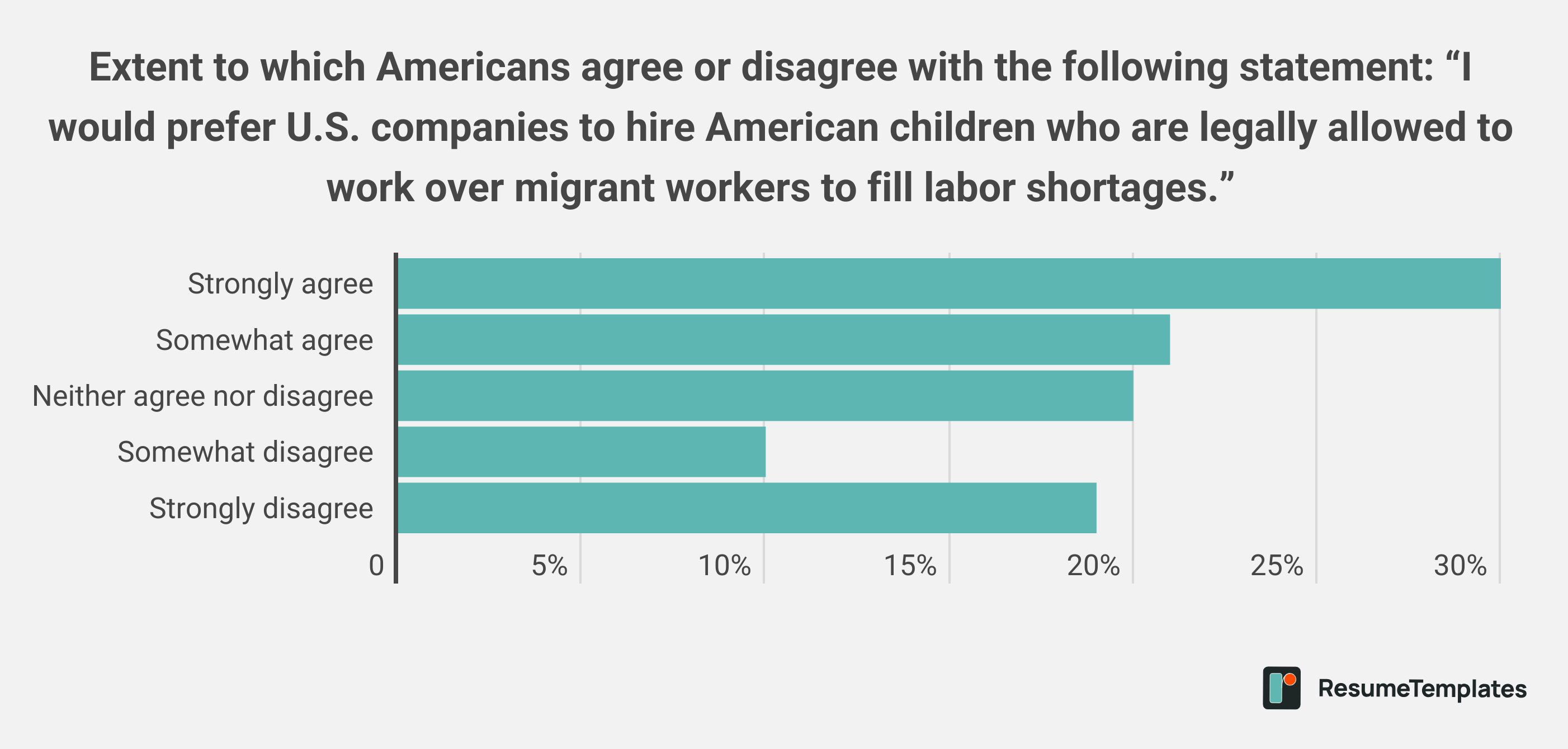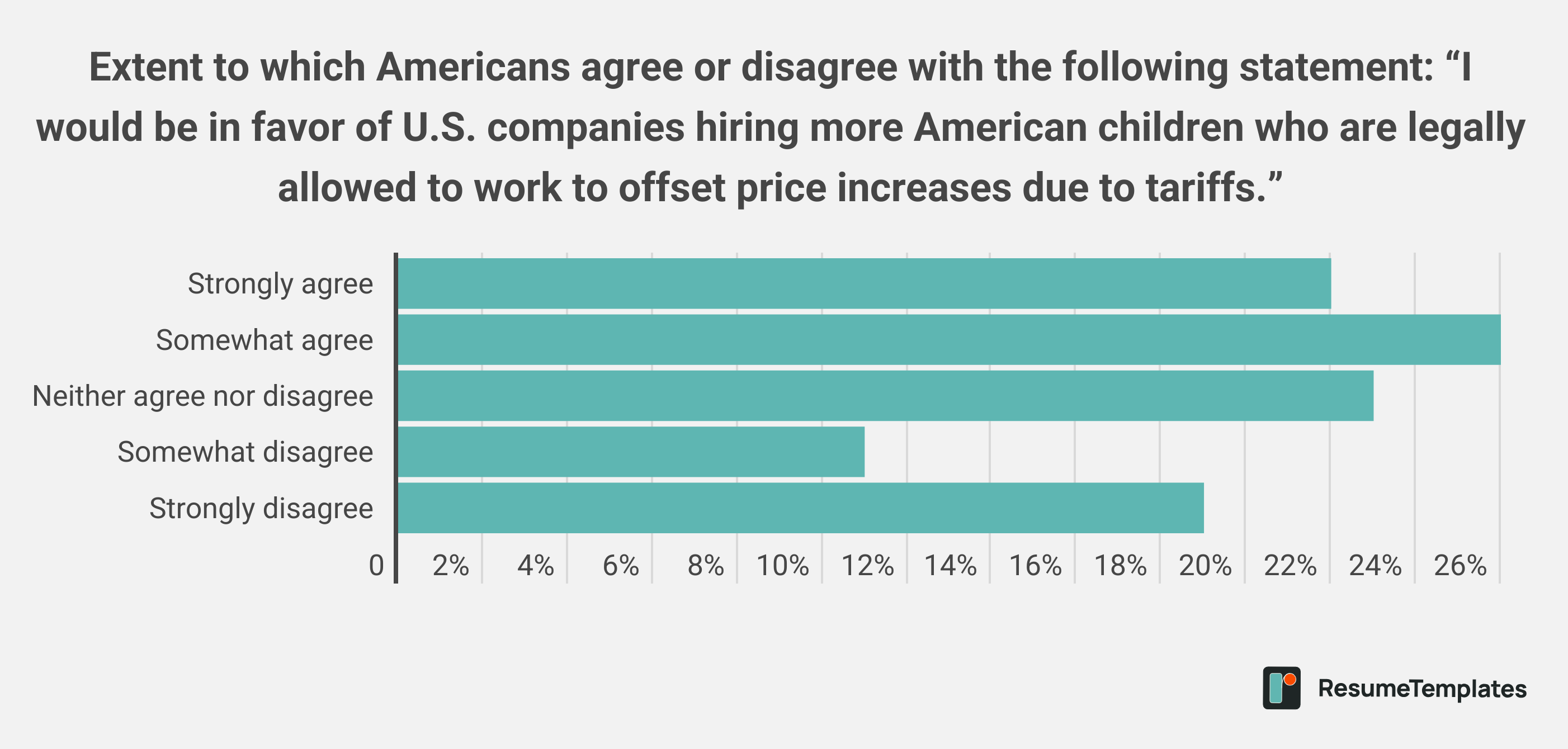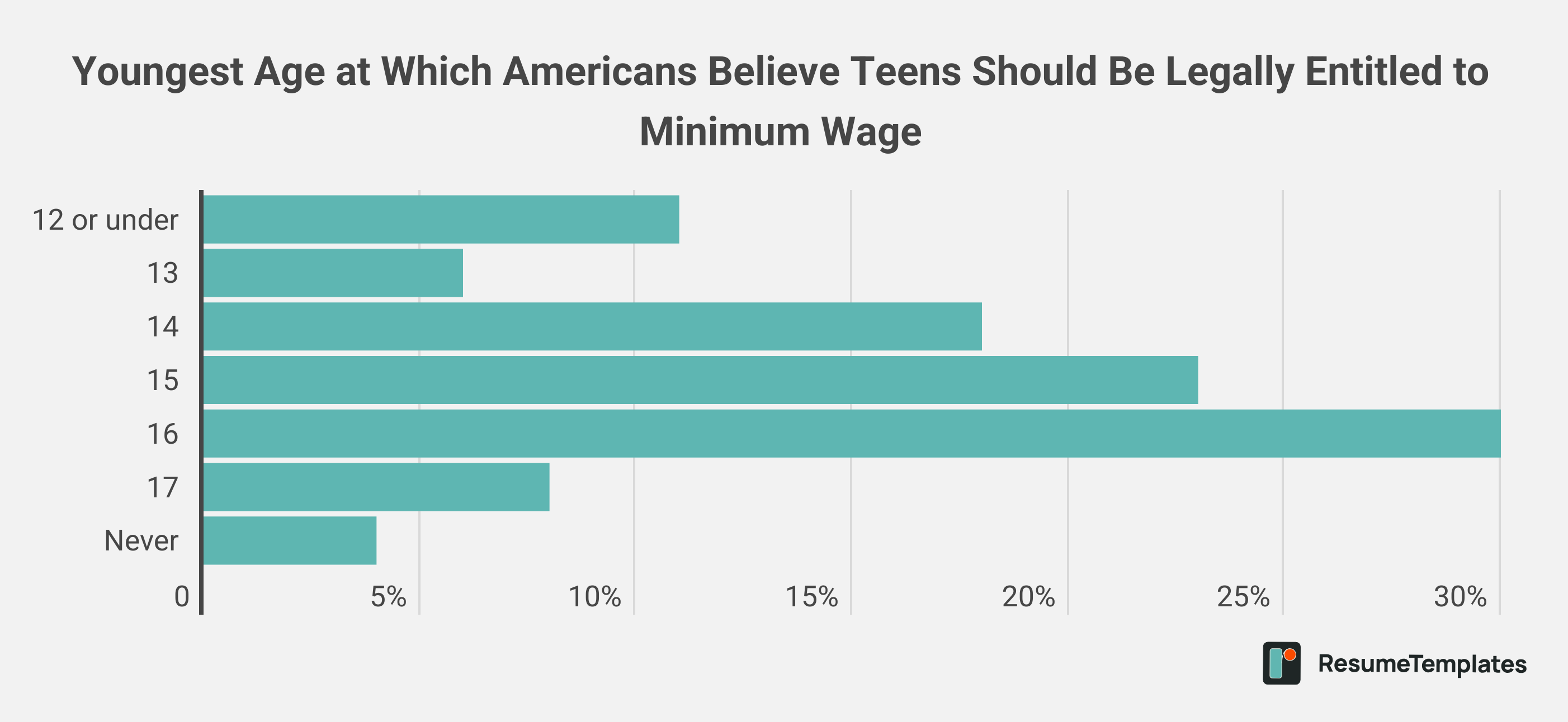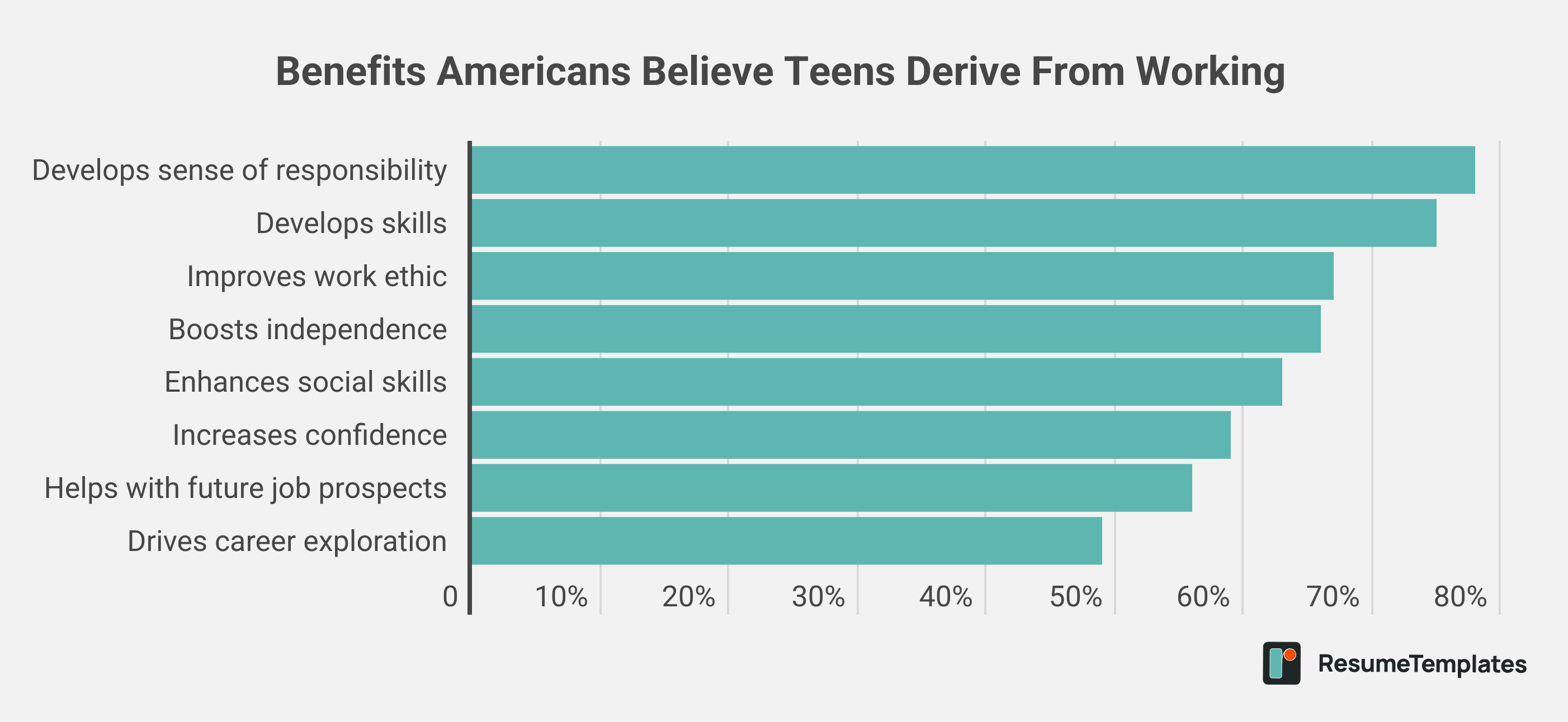Governor Ron DeSantis’ office recently proposed major rollbacks to the state’s child labor laws and DeSantis suggested a younger workforce could be part of the solution to replacing migrant labor.
In April, ResumeTemplates surveyed 2,000 U.S. adults to explore sentiment around teen employment, particularly as a way to address labor shortages and rising costs.
Highlights:
- 37% of Americans support reducing restrictions on child labor
- More than half of Americans are in favor of U.S. teens filing labor gaps over migrant workers
- Nearly half feel a younger workforce is a way to bring down costs, and two-thirds don’t feel teens under 16 need to be paid minimum wage
- 8 in 10 Americans feel teens benefit from joining the workforce; the majority believe holding a regular job would improve the work ethic of today’s youth
37% of Americans Support Reducing Restrictions on Child Labor
While most Americans are not in favor of weakening existing child labor protections, 37% say they would support rolling back certain restrictions.
Specifically, 22% say they would remove limits on how many hours children can work, and 20% support lowering the minimum working age. A smaller share, 8%, would go so far as to allow children to work in physically dangerous jobs, such as construction or factory work.

“The Fair Labor Standards Act allows children as young as 12 to work, but with limitations on how many hours they can work and the type of work they can do,” says ResumeTemplates Chief Career Strategist Julia Toothcare. “These laws protect children from being taken advantage of by business owners looking to save money and restrict children from work that might impact their health or cause injury.”
Majority Prefer U.S. Teens Over Migrant Workers for Filling Labor Gaps
When asked whether they would prefer U.S. companies hire American children, within the current child labor laws, instead of migrant workers to address labor shortages, more than half (51%) of Americans expressed support. Just 28% disagree, while 20% remain neutral.
Among those who support hiring American youth over migrants, the most common reason cited was that it benefits American youth (63%), followed by aligning with an “America first” approach (54%) and reducing dependence on foreign labor (42%).

Nearly Half Support Hiring Teens To Offset Tariff-Driven Price Hikes
Americans are also open to hiring more teens within the country to reduce labor costs and offset potentially higher prices due to tariffs.
When asked whether they would support companies employing legally eligible U.S. children to offset price increases tied to tariffs, 47% agreed (22% strongly and 26% somewhat). About 23% were neutral to the idea, while 30% opposed it.
Many believe that children under 16 can be paid less than minimum wage
While most Americans agree that older teens should be paid minimum wage if they’re working, many don’t believe the same applies to younger teens. In fact, 30% say teens under 16 don’t need to be paid minimum wage, and 8% say only 17-year-olds should be paid minimum wage. Further, 4% don’t feel workers under 18 ever need to be paid minimum wage.

“Just because a child is doing the work doesn’t mean they shouldn’t get paid fairly for it. Everyone should be paid in accordance with the minimum wage laws. Those laws exist to keep businesses from taking advantage of workers, and children should be no expectation,” says Toothacre.
Nearly All Americans See Benefits to Today’s Teens Holding Jobs
The overwhelming majority of Americans believe working offers meaningful developmental benefits for kids. Nearly eight in 10 say it builds a sense of responsibility, and more than three-quarters say it helps develop practical skills.
Other top perceived benefits include improving work ethic (67%), boosting independence (67%), and enhancing social skills (63%). Over half believe jobs help with future career prospects (56%) and encourage career exploration (49%). Only 4% of respondents feel there are no real benefits to kids working.

Additionally, a strong majority of Americans believe that holding a regular job would improve the work ethic of today’s youth. Four in 10 say it would help a lot, while another 34% say it would help somewhat.
“For some kids, the ability to earn money directly helps support their families or allows them to start saving for their future. Teen jobs also offer important benefits like teaching them how to manage a schedule and handle work responsibilities. Additionally, as a career coach, I’ve seen how these early work experiences can help teens explore different career options and better understand their strengths, which can help inform what they pursue in the future,” says Toothacre.
Methodology: ResumeTemplates commissioned this survey via Pollfish in April 2025. The survey included a nationally representative sample of 2,000 U.S. residents.
Contact: [email protected]
Resume Templates offers free, HR approved resume templates to help you create a professional resume in minutes. Choose from several template options and even pre-populate a resume from your profile.